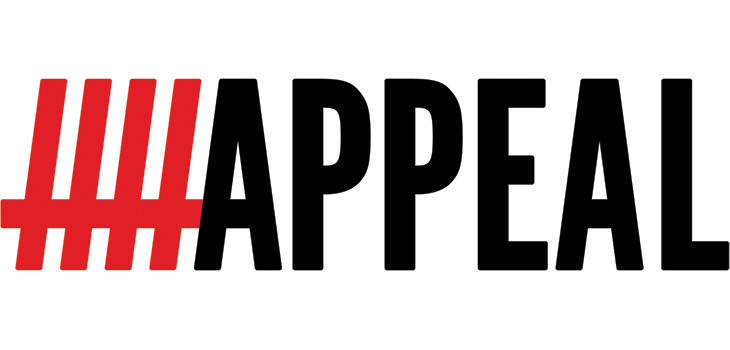
There may be a perception that law firms only do pro bono work to improve their public image and to tick a box for their CSR programmes. We disagree. Pro bono partnerships, when done in the right way, can be hugely beneficial for many reasons, and for all involved. At Ropes & Gray, our team in London is particularly proud of our partnership with APPEAL (appeal.org.uk). APPEAL is a charity and law practice made up of experienced and talented investigators and lawyers committed to identifying, investigating and litigating potential miscarriages of justice and advocating for reforms to the criminal justice system.
For a number of years a team of lawyers at Ropes & Gray, along with Latham & Watkins, Edward Henry QC of QEB Hollis Whiteman and Max Hardy of 9 Bedford Row, has been assisting APPEAL with the case of Andrew Malkinson.
The Malkinson case
Andy’s case is as appalling as it is compelling. Andy was convicted of the July 2003 rape of a 33-year-old woman, who was violently attacked in the early hours of the morning and left for dead. He has recently been released from prison having served more than 17 years. He remains in the eyes of the law a convicted sex offender, subject to restrictions, and is determined to clear his name. His refusal to admit to the offence meant that he spent many more years in prison than he would have done had he accepted guilt. Now, DNA links an unknown male to the crime.
It would be impossible to do justice here to the many failings that have impacted Andy’s case, from evidence destruction to untraced alternative suspects. The Sunday Times’s social affairs correspondent Emily Dugan is currently examining the many problems with Andy’s case as part of the Stories of our Times podcast series.
Time and time again, the criminal justice system failed Andy. There has never been any forensic evidence linking him to this crime; the case against him hinged on the identification evidence of the victim and two purportedly independent and honest witnesses, despite the fact that he did not match several important aspects of the description of the attacker provided to police by the victim. Greater Manchester Police (GMP), the force that investigated the crime, recently disclosed new information regarding those two ‘independent and honest witnesses’ which it has accepted should have been disclosed to Andy at trial and, had it been, could have been used to undermine their credibility before the jury.
Following his conviction, Andy staunchly maintained his innocence, and as a result was kept in prison for ten years beyond the tariff imposed by the court. GMP has known from the outset that Andy was pursuing avenues of appeal, and that GMP was required by law to preserve the evidence in his case.
Despite this, in 2019, GMP confirmed to APPEAL that on two occasions, in 2011 and 2013, evidence had been ‘weeded’ from Andy’s case file. Key evidence that may have provided crucial samples for forensic testing, including the victim’s underwear and a top she was wearing when she was attacked, also cannot be located. GMP has never provided an adequate explanation for this destruction of evidence, or even been able to say who authorised it.
Despite this, the force has seen fit to suspend a misconduct investigation into Andy’s case, a decision described as ‘deeply troubling’ by APPEAL founder and director Emily Bolton.
Forensic discoveries post-conviction
In spite of the failings of GMP, in 2020 and 2021, thanks to the tenacity of Andy and his team at APPEAL, forensic testing was carried out on several samples that remained. This testing detected DNA belonging to an unknown male in samples taken from the victim and her clothing. A sample taken from the victim’s left nail scrapings is particularly significant, as she gave evidence that she used her left hand to cause a deep scratch to her attacker’s face. No such scratch was ever seen on Andy.
An application is currently pending before the Criminal Cases Review Commission, and we are hopeful that Andy’s case will be referred back to the Court of Appeal and finally overturned. This has been a long time coming for Andy, who has lost close to 20 years of his life to this case. The system also failed the victim; her attacker has not faced justice, and she is now forced to relive this horrendous ordeal.
Invaluable opportunities
We know that we speak for everyone on the team when we say that it has been an enormous privilege, both professionally and personally, to work on Andy’s case. There are many parallels and transferable skills between the work we do in our litigation and enforcement practice and with APPEAL. In particular, it is a fantastic opportunity for more junior lawyers to gain exposure to criminal litigation, review and assess evidence and consider the practical and tactical aspects of litigation. There are invaluable opportunities to work closely with clients and within a team of external lawyers and counsel, benefiting from shared experience, as well as to hone legal research and drafting skills while assisting with important and interesting submissions.
APPEAL has also benefited from our commitment to the case, especially with reviewing a huge volume of material, and from our assistance with drafting, enabling this tiny charity and law practice to achieve a greater impact despite its scant resources.
Pro bono work benefits lawyers, firms and communities, and Andy’s case is one of the very best examples of a successful pro bono partnership. All of us have our fingers crossed that we are now on the way to having Andy’s conviction finally overturned.
In Denial – how pro bono lawyers are exposing the flaws in the criminal justice system – APPEAL
Jessica Dunk, associate, Ropes & Gray LLP (ww.ropesgray.com).










